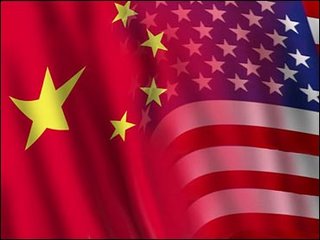
The Sunday Mail

AFRICA has long been a battleground for world powers.
Two giants playing there these days are China, which is spending freely throughout the continent to scoop up resources and tap some of the world’s fastest-growing economies, and the US, which is looking to do more business.
Both Chinese and US companies expect to profit from their African stakes.
The question is whether Africans can win, too.
The situation
China’s investments in Sub-Saharan Africa have grown 40-fold since 2003 and its state-owned enterprises have been able to roll out projects quickly and in every country on the continent, primarily building things like hydroelectric dams on the Nile, highways to oil regions and railways to carry iron ore.
After complaints that China was becoming another colonial overlord, China’s government and the African Development Bank committed US$2 billion to a fund designed to help African companies win Chinese contracts.
While Chinese companies have been criticised for importing Chinese labour rather than training and employing Africans, they are now building garment manufacturing plants to take advantage of Africa’s cheap labour amid high unemployment.
US development in Africa has been private-sector driven and concentrated in just a few countries including Liberia, Mauritius and South Africa.
President Barack Obama wants American companies to do more.
In 2013, the US began the Power Africa initiative to build electricity grids and generators across six countries by working with African companies and US partners that have top-of-the-line technology, including General Electric, and offering US$7 billion in financial support and loan guarantees.
More deals are expected to be announced in August at the US-Africa Leaders Summit in Washington (last week).
The background
European imperialism left deep scars in Africa.
During the Cold War, the US and Soviet Union intervened to put dictators in power who lined their own pockets and left legacies of poverty, famine and conflict.
Foreign aid was often misused and diverted for weapons. Food aid imported to combat famines depressed prices for local farmers.
Unrest led to little investment in infrastructure; even now about 600 million Sub-Saharan Africans – about 70 percent of the population – lack electricity.
Though Africa is rich in minerals and energy sources, few Africans have benefited from exports of those materials.
Some economists and policymakers have even argued that dependence on natural resources does more harm than good – a phenomenon they call “the resource curse.”
The argument
China’s rapid-fire, state-funded building provides quick fixes to pressing infrastructure needs in Africa, though some critics say construction can be shoddy.
China also isn’t fussy about working with controversial political regimes, bestowing legitimacy on leaders in countries that U.S. companies won’t touch.
Though it sometimes pays little heed to the political and environmental impact of its investments, China’s government has stepped in when its investments were threatened – as it did in South Sudan – and thus could help promote calm.
While the US is trying to use development as a way to shore up regional stability, its investments can take longer to get the jobs done, since companies have to satisfy shareholders and projects often undergo environmental vetting before they can get off the ground.
US companies are also subject to anti-corruption laws that make it almost impossible to do deals in places where bribery is common.
US and Chinese investments in transportation and
electricity should make it easier for African businesses to get goods and services to and from the continent.
African planners hope this will help lift the average per-capita income past US$10 000 in many countries in the next three decades. — Bloomberg





